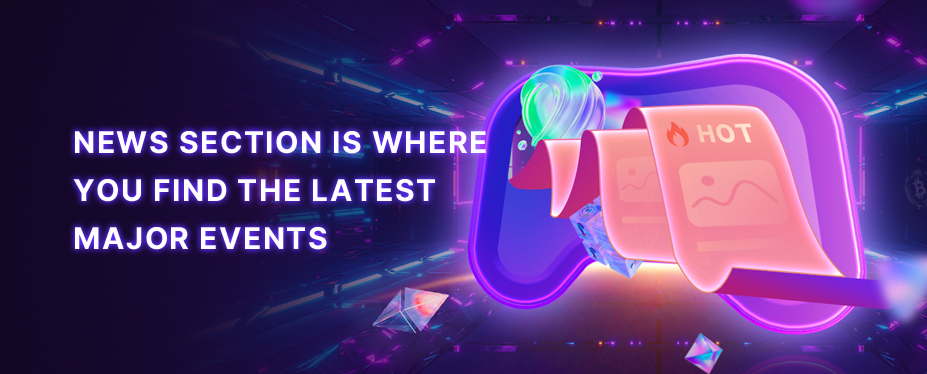Traditional Gamers vs. Crypto Enthusiasts: The Diverging Appeal of Blockchain Games

As blockchain games gain traction, the divide between crypto enthusiasts and traditional gamers highlights different motivations for engagement, from earning potential to immersive storytelling.
Gaming and blockchain technologies are forming a new genre of entertainment, aptly called blockchain gaming, encompassing video games, P2E models, and crypto casinos, which are an innovative way gamers engage in their preferred gameplay with the potential of real-world benefits. Primarily, this newly formed genre resonates with crypto enthusiasts. Still, gamers are also gradually joining the fold, and understanding the differences in acquisition between these two user bases is important to assess the general appeal of blockchain gaming within the broader entertainment scene.
Differences in Acquisition
When compared side-by-side, the acquisition of blockchain gaming between crypto enthusiasts and gamers sheds light on the differences in engagement and motivations in these audiences. For example, the former user base is driven by the potential financial gain that could be derived from playing blockchain-based games, and therefore, they gravitate towards earning tokens or NFTs, which could be viewed as an investment that could grow as time goes on.
As a result, these players might focus more on the earning potential in P2E games or crypto casinos that offer instant payouts with minimal withdrawal limits and higher bonus offerings, as mentioned by crypto gambling expert Aneeca Younas (source: https://instantcasinos.com/). Meanwhile, gamers coming from a traditional gaming background seek more engaging gameplay with immersive interfaces and compelling storylines alongside innovative mechanisms, which is why some blockchain games resonate better with them.
Games that allow the true ownership of in-game assets as NFTs appeal more to this audience since they elevate the gaming experience to be more personalized. Therefore, although gamers are gradually warming up to the idea, blockchain gaming is currently liked more by crypto users than traditional gamers, which is a divergence that can be expected given the context of the differing preferences between these audiences.
Advantages of Blockchain Gaming
Regardless of the varying motives for playing games powered by blockchain technologies, there are many advantages for both user bases, particularly traditional gamers. In many cases, centrally hosted and controlled games are susceptible to cheat codes or hacks that compromise the integrity of the game and ruin the experience. However, with blockchain technologies, this is a non-issue, as data transferred can always be verified as fair.
In a similar vein, the prospect of true ownership of in-game assets enhances the game’s mechanics, which is something impossible to do with traditional gaming titles since all assets are owned by the developers indefinitely. In addition, these NFT assets can be traded for financial gain within the game or on other available marketplaces, creating a valuable opportunity for players to invest as they play. To make the experience more convenient, the latest blockchain technologies can facilitate nearly instantaneous transactions, eliminating the need to wait for days or weeks to withdraw any financial gains derived from playing blockchain games.
Moreover, the element of investing in in-game assets creates an immersive gaming environment with a long-term commitment from players as they await the value of their NFTs to increase over time.
Drawbacks of Blockchain Gaming
Although there are significant advantages to this gaming concept, some traditional gamers may be skeptical about exploring the available options due to the financial landscape surrounding blockchain networks. For example, digital assets fluctuate in value, and beginners might hesitate due to a lack of understanding of how to mitigate this inherent risk.
Experienced crypto enthusiasts, on the other hand, have found effective ways to hedge against market volatility to ensure long-term resilience. Additionally, blockchain technologies often require more advanced technical knowledge, including an understanding of crypto wallets, NFT marketplaces, and cryptocurrencies in general.
As a result, traditional gamers who haven’t been exposed to this realm might be reluctant to get started with blockchain gaming. Therefore, this acts as a deterrent to some gamers, stunting the growth of this innovative model that has displayed great promise in reshaping the gaming scene on a global stage. However, while some may still be reluctant to get into blockchain gaming, many big-name companies are joining the effort, which may see more players turning to blockchain gaming in the near future.
The Future of Blockchain Gaming
The fondness for blockchain gaming among gamers is a nuanced and multilayered matter, meaning it may take some time to gain wider traction. Currently, crypto enthusiasts are the most active in this sector, but there is steady growth in other gaming communities due to benefits such as true asset ownership, fast payouts, and earning potential.
Both video games that run on blockchain networks and iGaming platforms using cryptocurrencies are projected to have significant growth in the coming years, especially as regulations become clearer on these technologies. Be that as it may, stakeholders are committed to bridging the gap between traditional gaming with such innovative technologies by addressing concerns currently facing this sector.





